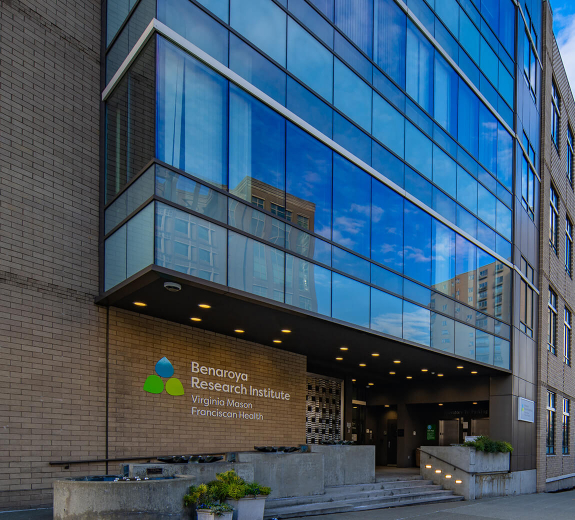Scientists at the Benaroya Research Institute (BRI), in partnership with investigators at Seattle Children’s Research Institute, have made a significant advance in developing a T cell therapy to treat type 1 diabetes (T1D). This study, published this month in Science Translational Medicine, outlines an approach to engineer regulatory T cells (Tregs) to stop the immune cell attack on the pancreas that causes T1D.
Dr. Jane Buckner, President of BRI, and Dr. David Rawlings, Director of the Center for Immunity and Immunotherapy at Seattle Children’s Research Institute, and their research teams have been working toward this goal for more than ten years. First, they developed gene editing methods to manufacture human Tregs, an important step for overcoming challenges with purifying and expanding Tregs from blood for clinical production. This work published in 2020 in Science Translational Medicine also demonstrated that these engineered Tregs (EngTregs) were functional, suppressing the immune response in pre-clinical models of inflammatory diseases.
The next step and the most recent advance was to make these EngTreg specific to the pancreas, so that they would go to the pancreas and suppress the autoimmune response that causes T1D. To do this, the BRI and Seattle Children’s Research Institute scientists used their knowledge of T cell receptors (TCRs), proteins on the T cell surface that determine the target of T cells. They combined gene editing with gene transfer of TCRs to generate EngTregs that specifically target the islet in the pancreas.
Dr. Soo Jung Yang in Dr. Buckner’s lab demonstrated that these islet-specific EngTregs have the capacity to suppress T cells attacking the pancreas using cell culture models of cells isolated from individuals with T1D. Dr. Rawlings and his team then demonstrated that these islet-specific EngTregs target the pancreas and prevent diabetes in a mouse model of diabetes. Together these findings demonstrate the therapeutic potential for islet-specific EngTregs in human T1D.
"This study is an important step because it shows that, by copying a natural process that protects the body, we might be able to stop T1D at the source," says Dr. Yang.
"This research leverages our background in gene editing to establish a new cell therapy for the treatment or prevention of type 1 diabetes and other organ specific autoimmune and inflammatory disorders," said Dr. Rawlings. "We hope that someday this therapy could become a groundbreaking treatment."
"In addition to being a key advance toward a treatment for T1D, this work also lays the groundwork to apply this approach to other autoimmune diseases" Dr. Buckner says.
This research was sponsored by a grant from the Leona M. and Harry B. Helmsley Charitable Trust.



